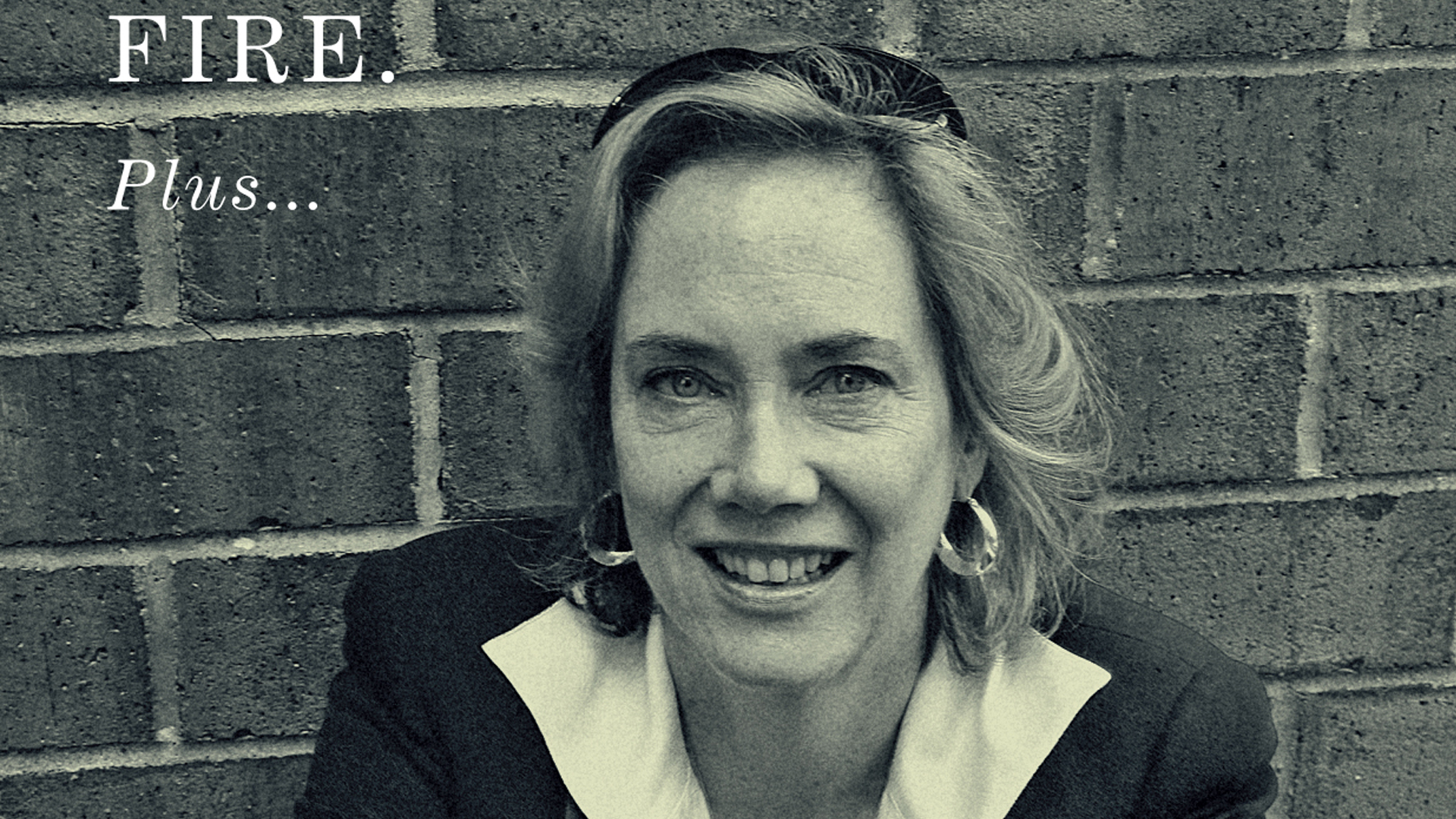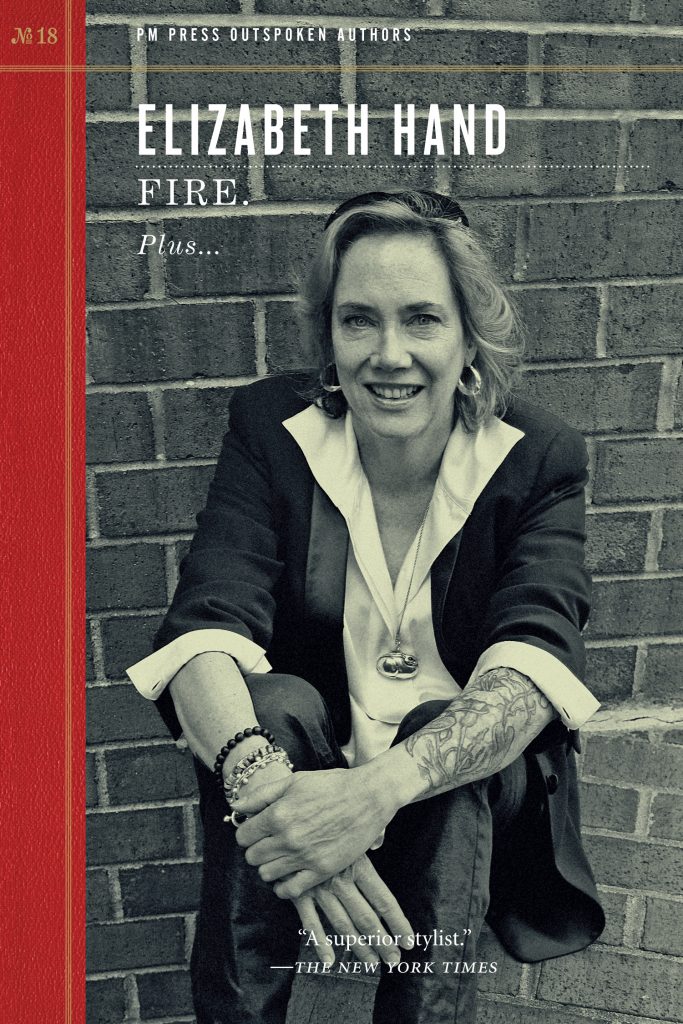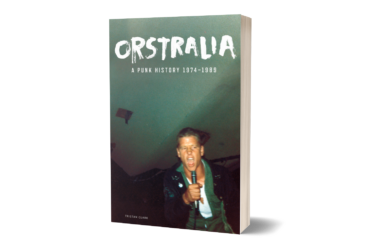Geek’s Guide to Culture
Wired
April 8th, 2017
In 2013 author Elizabeth Hand was invited to Washington DC by a think tank that thought her experience writing dystopian science fiction might give her a useful perspective on current climate change challenges. Hand is well-versed in doomsday scenarios, but what she learned at the think tank about the risk of massive fires really startled her.
“We’re not looking at if a mega-fire is going to happen and overtake a major urban area, or a major residential area, it’s a matter of when,” Hand says in Episode 250 of the Geek’s Guide to the Galaxy podcast. “And we are not at all prepared for it.”
That knowledge inspired her story “Fire,” about a group of hikers facing certain death in the midst of an apocalyptic forest fire, and also gave her a new appreciation for the scientists and firefighters of the Forest Service.
“These are the good guys, who are working for us—and good gals, the good people,” she says. “And these are the ones whose jobs will be impacted by changes in the current administration.”
Hand says that people tend to be complacent about budget cuts that affect disaster readiness, but that those cuts can easily have dramatic results. Diminished budgets can also mean communities might have to do more to organize preventative measures themselves. “We are not going to be able to depend on the government to help us,” she says. “We’re going to have to learn a certain level of resilience and a certain level of preparedness.”
Listen to our complete interview with Elizabeth Hand in Episode 250 of Geek’s Guide to the Galaxy (above). And check out some highlights from the discussion below.
Elizabeth Hand on optimism:
“My friend Bob Olson had read a novel of mine called Glimmering, which is an extremely dark, dystopic novel that came out in 1997, and opens with things like jihadi terrorists flying an airliner into a lower Manhattan landmark. It was a book where I channeled a lot of my anxiety about the future into it, and then 20 years later found myself living in that future. But anyway, Bob Olson read that book and he called me on it, and he said, ‘You know, this is such a dark novel, and the ending is so dark, and there’s no hope in it at all. Don’t you feel like you have some responsibility as a writer to present—not an optimistic, Pollyannaish vision—but something more hopeful for people to have as a takeaway?’ And actually, I don’t know if I can write that kind of book, so maybe I will leave that to other speculative writers who could maybe come up with things that might have more of an element of optimism in them.”
Elizabeth Hand on science fiction writers:
“I think there are a lot of science fiction writers who are very prescient in writing about various climatological or ecological scenarios, going back to John Wyndham and The Day of the Triffids. There was a whole strain of ecological science fiction in the 1970s—and also very politically astute science fiction. Ursula Le Guin’s work, many people. So I think science fiction writers have done a lot—and are still doing a lot—to popularize notions of change. … But unless the world just completely disappears, like we’re hit by an asteroid and incinerated, it’s not going to end. Nature as we know it will end, species will become extinct, but people will probably survive, for a while. Though they may not want to, in a severely diminished world, a world without polar bears or whales.”
Elizabeth Hand on Obamacare:
“I was miserably underinsured, because I wanted to make sure my kids had insurance, and spent a fortune—I don’t know, $70,000 or something—on insurance that was basically worthless. And then when the Affordable Care Act came around, I immediately signed on, and almost the first thing I did was get a colonoscopy. At the time I was 57. You’re supposed to get one after you’re 50, but I couldn’t afford one. It was $5,000 or something, so I’d gone without one. I got one, and the doctor came back and said, ‘It’s really good that you got this. You’re fine, I’ve taken care of everything, but if you hadn’t done this you would have developed colon cancer probably within a year, and it probably would have progressed very quickly.’ So if I had not been able to afford health insurance through the Affordable Care Act, I might not be talking to you.”
Elizabeth Hand on James Tiptree, Jr. by Julie Phillips:
“It’s one of the few biographies I’ve ever read—if not the only one—that made me cry. She just had such a sad life. I mean, not sad in the sense that she just sat alone in a room. She had a really fascinating life. She worked for the CIA and as a child she traveled to Africa on safaris, but she was just obviously somebody who—she did not identify as a straight woman, and whether or not she would have today been transgender, which maybe she would have been, or she would have come out as being a gay woman or a bisexual woman, she was not able to do any of those things in her lifetime. And she channeled a lot of that rage and grief into her fiction, which is some of the most brilliant fiction of the 20th century.”







